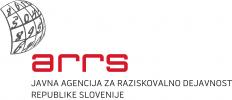Response of farming families to the consequences of accidents at work and occupational diseases
Principal Investigator at ZRC SAZU
Majda Černič Istenič, PhD-
Original Title
Odzivanje kmečkih družin na posledice delovnih nesreč in poklicnih bolezni
Project Team
Lilijana Šprah, PhD, Duška Knežević Hočevar, PhD, Sanja Cukut Krilić, PhD, Mateja Slovenc Grasselli, PhD, Tjaš Debeljak, Anela Klemenc Bešo-
Project ID
V5-2028
-
Duration
1 November 2020–31 October 2022 -
SICRIS
Response of farming families to the consequences of accidents at work and occup… -
Financial Source
Ministrstvo za kmetijstvo gozdarstvo in prehrano

Javna agencija za raziskovalno dejavnost Republike Slovenije

Available records of work injuries and occupational diseases (WIOD) from around the world show that farm occupation, mostly carried out on family farms, is one of the most dangerous and risky occupations. Notwithstanding the significant contribution of WIOD to mortality and disability - the vulnerability of farmers and farm workers - research that would shed light on this phenomenon is limited. The studies that would address WIOD in agriculture from the perspective of farmers and their families and their own responses and coping strategies to the consequences of WIOD - including survival strategies, sustainable livelihoods and farm development - are almost entirely lacking, given the growing public interest in agricultural activities in terms of quality, healthy and safe food production and its impact on the environment. In view of these facts, the proposed project aims to answer the question of how farm family members perceive, experience, accept and resolve their own disability or the disability of their family members caused by WIOD and how farmers and other actors in the local and wider environment evaluate the idea of implementing social/labour services as a possible form of public-private partnership to help when a farm is experiencing loss of work due to injury or illness.
Objectives:
- identify the extent, characteristics and causes of this phenomenon and the economic costs incurred at farm and group level
- Answer the question how members of farming families deal with their physical and mental disability or the disability of their family members caused by the WIOD and how work on family farms with a disabled member is organized;
- Identify the sources of informal and formal assistance available to family farms with a disabled member and how they accept and see (whether it is sufficient/appropriate for them) this assistance;
- Study the changes in life and work on family farms due to the disability of one of their members and how this affects the continued operation and existence of the farm, i.e. what further development strategies are chosen in farms with WIOD experience.
- Identify how the different actors in the local and wider environment perceive the problem of a farmer's disability due to DNPB and how they see the possible solutions and measures, and
- Find out how farmers and other actors in the agricultural system see the idea of setting up social and labor assistance (SLA), a form of public-private service, as possible solutions to compensate for the loss of farm work caused by WIOD.
- Coordination of the work of the project group with regular working meetings; preparation of interim and final reports; communication with key informants to obtaine potential survey and interview participants, and with information and statistics providers (1-24 months);
- Ongoing updating of scientific literature and other materials (official documents and reports in the field of different policies, etc.) to finalize research approaches and prepare research tools (analysis of statistical data, design of selected content for interviews, focus group) and analysis of good practices of SLA abroad (1-20 months);
- Conducting a survey and obtaining the statistical database, analyzing the statistical data and calculating the economic burden of absenteeism/presentism among farmers; conducting pilot and semi-structured interviews with selected participants; participating in various events attended by farmers; a verbatim transcription of the interview recordings and an ethnographic diary; analyzing the material received, conducting the focus group, transcribing the recording and analyzing the information obtained (1-18 months)
- Synthesis of all phases of the study in the form of a final report, dissemination of the results to the users ( policy makers in ministries and chambers, agricultural advisors, associations, general public, ...) through lectures, workshops and media appearances as well as in the educational process and in the professional and scientific community with public presentations in print and electronic media, participation in scientific and professional conferences and publications in scientific and professional literature at home and abroad (18-24 months).